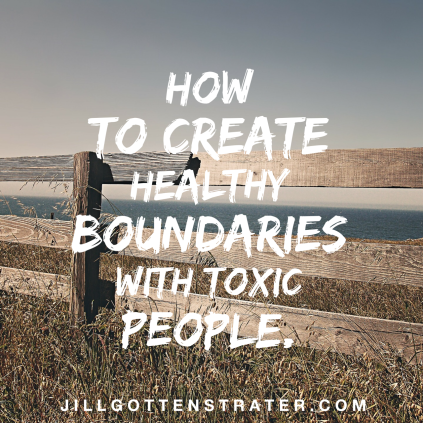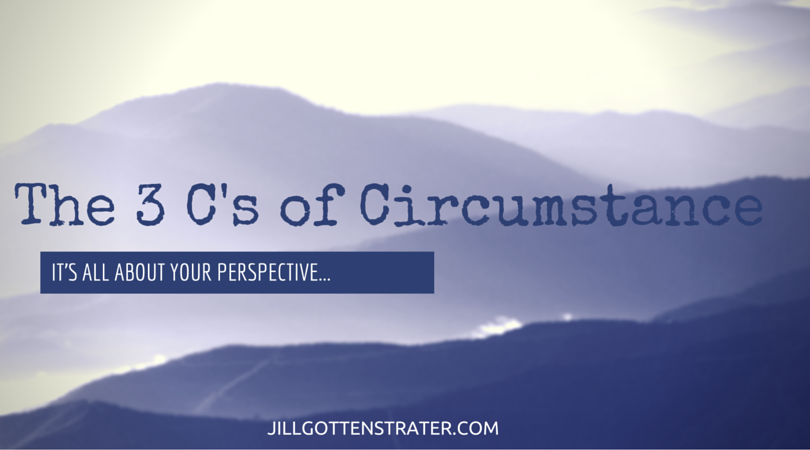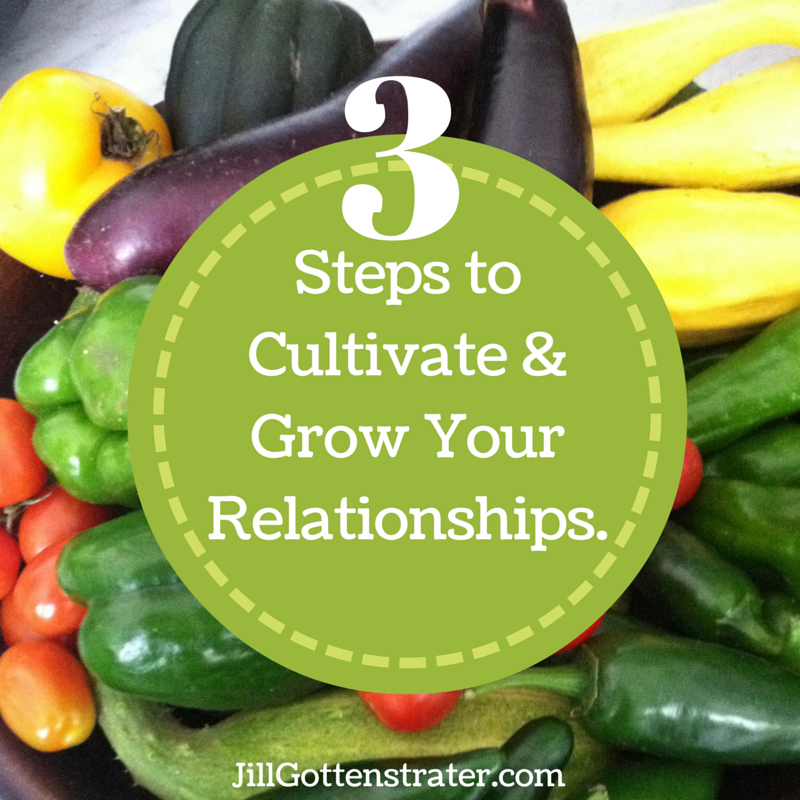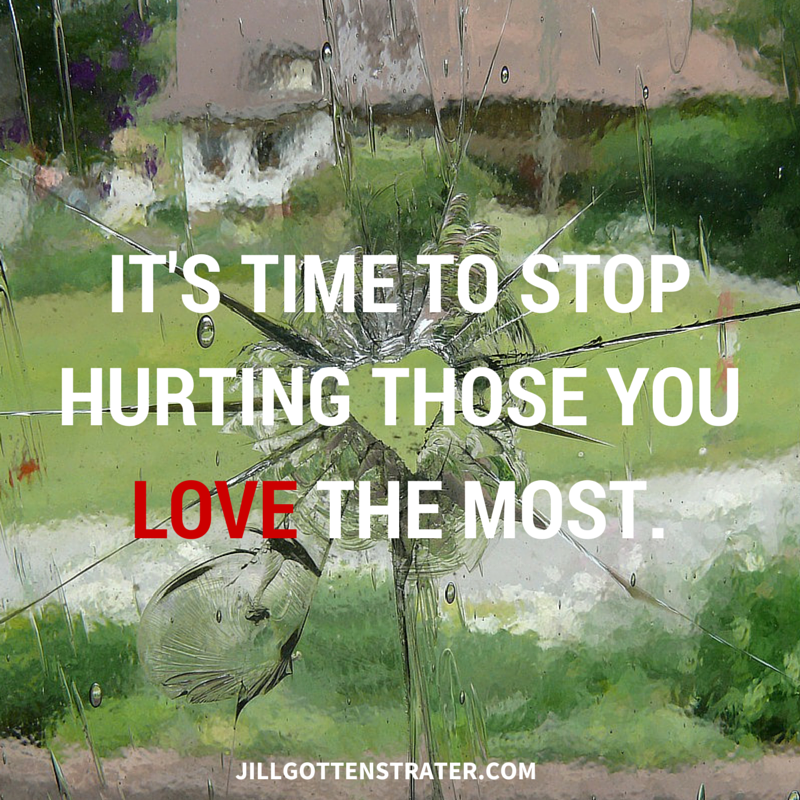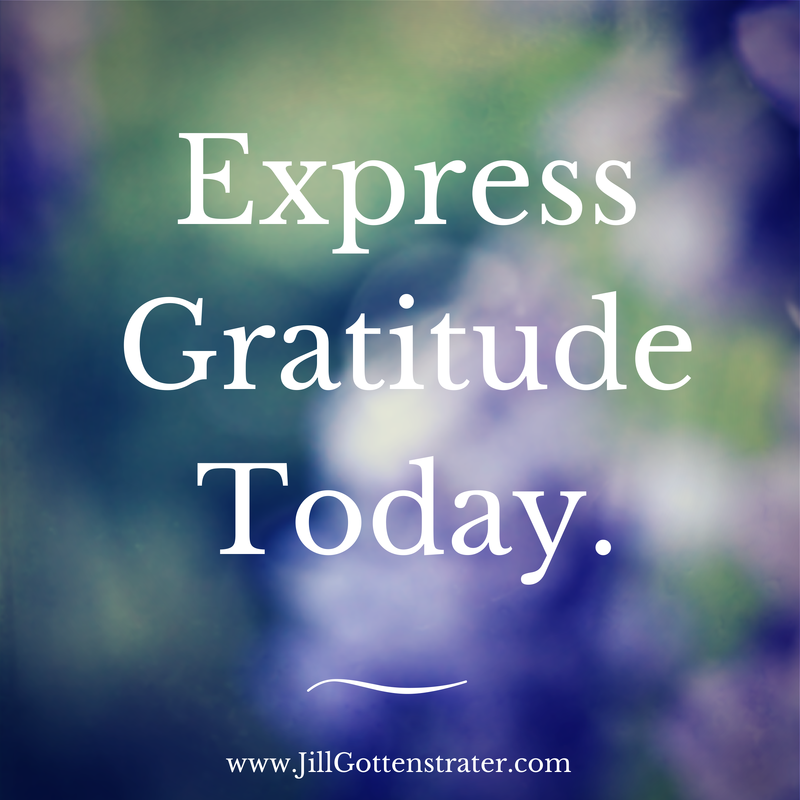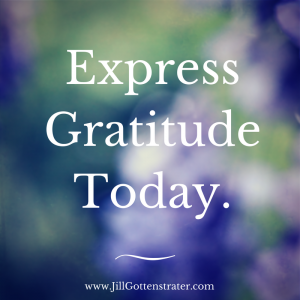How to Create Healthy Boundaries With Toxic People
“You are the average of the five people you spend the most time with.” — Stephen Covey
I hope you have lots of awesome people in your life, but for our purposes today, we’re going to talk about the toxic people in our lives.
We’ve all got one or two of these toxic relationships, the question is, how do we deal with them?
I’ve found that when I’m around someone toxic, their toxicity bleeds out on me, and with prolonged “exposure”, I’m likely to have toxic reactions: outbursts of anger, saying things I don’t mean, complaining, being argumentative, and being stressed out in general. Your reactions may manifest themselves in different ways, but what we both share is that we allow someone else’s toxic behavior to affect us in a detrimental way.
Did you notice the words “we allow” in that last sentence? You and I both have the ability to either remove the toxic person from our lives completely, or at least limit our interactions with them. This is the process of creating healthy boundaries for yourself.
I know there are certain relationships where it feels like you’re stuck, or you don’t know how to limit your interactions without a huge ordeal. Today, we’re going to work through two different exercises: 1. Identifying the people who are toxic in our lives, and 2. How to establish healthy boundaries.
First, I want you to read an example I created that lays out a few boundary scenarios. I think this might help you gain perspective where some people fit in your life.
Imagine you lived next door to your best friend. When you moved in to your houses, there was a fence dividing your yards. Because you love hanging out with your friend and you both would like to pass back and forth freely for cookouts and the like, the two of you may decide to take the fence down. You may have another neighbor that you like, but you’d like a nice picket fence between the two of you with a gate. The gate is physically and symbolically a barrier to entry. But, with invitation, the gate is still an easy way to pass back and forth. On the flip side, imagine you live next door to a neighbor who is difficult, rude, ruthless, disrespectful, and junky. With this type of person as a neighbor, you may decide to erect a six foot, gate-less fence between your two houses so that your interactions are very limited. In this last scenario, you may also decide to move to another neighborhood.
Just as with neighbors — some, who you love (others, not so much), all our relationships would do well to go through a boundary test. You will choose to allow some people free access to you (no fence), others may need some healthy boundaries constructed (a gate as a barrier to entry), while some people are not welcome to any access, and you don’t care to ever see them (the six foot fence or a moving van in your driveway).
Friends, family, co-workers…we live in a world where we interact with many people on any given day. Awesome people, kind people, annoying people, mean people, funny people, abusive people, rude people, selfish people. For those that cross your path that are toxic, it’s time you properly identify them and establish healthy boundaries.
Let’s begin with an identification exercise. You may have a person or two that pop in your head automatically, but still complete the exercise, because it’s good to not only identify the toxic person, but define what it is that makes your relationship toxic. Someone may fit in every category on the list, and you’ll decide to end the relationship altogether, while someone else may be toxic in one area that you can either establish a proper boundary, or you can make a plan to try and help that person overcome the toxic behavior.
Grab a pencil and paper.
Write down the top 2-3 people (1 per page) outside your family that you have the most difficult or painful interactions with, and the top 2-3 people (1 per page) inside your family that you have the most difficult or painful interactions with. Now remember, for some of us, there may be some really extreme examples of abuse on our list, while others may just have some personality differences that strain the relationship. This is an exercise to create healthy boundaries for unhealthy relationships.
Now take each individual name and ask the following questions and write out your answers.
Does this person encourage me?
Does this person treat me with respect?
Does this person love me?
Does this person bring undue stress to my life?
Does this person have unrealistic expectations of me?
Is this person mostly negative?
Is this person honest with me?
Is this person way too self-centered?
Does this person have my back?
Does this person make me feel good when I’m around them?
You can also ask yourself the same types of questions, but flipped, like this:
Does this person discourage me?
Does this person disrespect me?
Does this person, through their actions and words, not show me love?
Does this person stress me out?
Does this person expect too much from me?
Does this person make you lose your positive outlook?
Is this person dishonest with me?
Does this person think the world revolves around them?
Does this person throw me under the bus?
Does this person make me feel bad, or hurt me?
The key here is not to lie to yourself or make excuses in this exercise. Keep it black and white for now. Just answer the questions as honestly as you can.
Now, it’s time to take a look at your list and make some healthy decisions. You may want to let it sit for a day or two, pray about it, or talk to someone you trust for input. The people you’ve identified probably fall in one of the following categories: Excessively dramatic. Abusive. Controlling. Chronically negative. Narcissistic/self-serving. Now it’s up to you to decide what type of boundary is best suited for each relationship. Following are six steps to help you through the process.
Six steps to creating healthy boundaries:
NOTE: For illustrative purposes, we’ll use an example of a toxic family member–let’s call her Aunt Jan–living close by, who expects too much of you and is extremely disrespectful. You currently do a bunch of weekly errands for her, stop by her house 2-3 times per week, and take her to all her doctor appointments. Aunt Jan is in her 70s and entirely able.
- Identify and acknowledge the toxic relationships in your life.Aunt Jan scored 8 out of 10 on the list above. Not a person you should be spending a great deal of time with! Just acknowledging the problem and deciding to do something about it, is a huge step in the right direction.
- Determine a personal boundary plan for each relationship, keeping in mind the importance of your emotional and physical well-being. You are the only family member living near Aunt Jan, so, although you’re tempted to write her off altogether, you determine instead that you will limit your interactions to one visit every three to four weeks, and no errand running or doctor office shuttling (you will supply her with a resource list of people/organizations that can help on a volunteer basis or for a fee).
- Set your plan in motion. Because Aunt Jan is somewhat of a bully, you may decide to tell her about the new plan via the telephone, and follow up with dropping the resource list in the mail. Face to face interactions can get heated, and you’re going to want the transition to be as smooth as possible. You should plan for kickback from Aunt Jan, but stick to your guns. Although you don’t owe her a reason for the boundaries you are setting, you may want to have a reason ready. One way is to let her know that you have over-committed yourself and need to make some changes in your schedule. I suggest you write it all out and have the paper with you, so you stick to the plan and are not pulled in another direction.
- Ask for support, if needed. Toxic people make boundary setting tough, so don’t go at it alone. Enlist support from a friend, family member, counselor, pastor, or, in extreme cases, a police officer. Just venting to or bouncing ideas off a friend can be all you need to stay strong and sane. I think I’d even plan on taking someone along with me on my monthly visits to Aunt Jan. She may be on her best behavior when in the company of others.
- Remember why you made the decision to end the relationship or establish boundaries in the first place.With time, you might forget how bad the relationship was and repeat your mistakes. Don’t let guilt wear you down either.
- Focus on the positive influencers. Remember the quote by Stephen Covey at the beginning of this article? “You are the average of the five people you spend the most time with.” Surround yourself and enjoy the positive influencers in your life. Don’t let the toxicity of one relationship stain another.
Friends, setting boundaries with toxic people will not be an easy process. It may be uncomfortable, awkward, and even scary, but just remember, you deserve to have an abundance of happy, healthy relationships.
Jill xx

